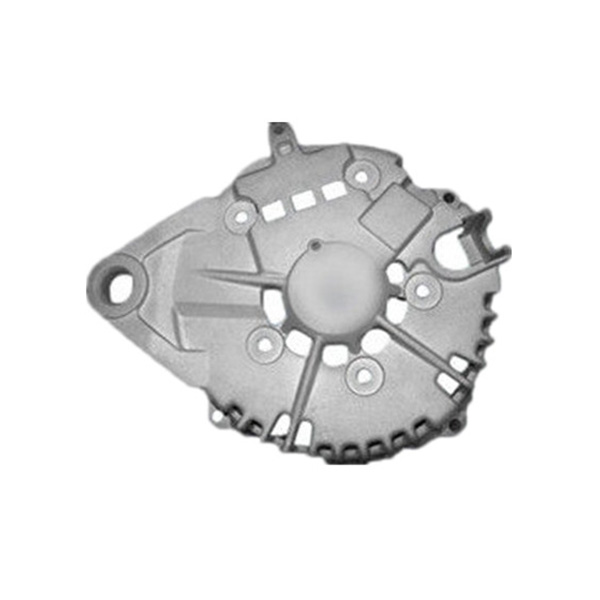Mobile:+86-311-808-126-83
Email:info@ydcastings.com
folding impeller
The Folding Impeller A Revolution in Fluid Dynamics
The field of fluid dynamics has always been at the forefront of innovation, driving the design and efficiency of various mechanical systems. Among the wide array of technologies employed, the folding impeller stands out as a remarkable advancement that promises enhanced performance and versatility in multiple applications. This article delves into the principles, advantages, and future of folding impellers in engineering and industrial contexts.
What is a Folding Impeller?
A folding impeller is a type of rotor used in pumps, fans, and turbines that can collapse or expand its blades while in operation. This unique mechanism allows for significant changes in size and shape, optimizing fluid motion in varying conditions. Unlike traditional impellers, which maintain a fixed structure, folding impellers adapt to fluid dynamics, thereby improving efficiency and reducing energy consumption.
Folding impellers typically consist of flexible materials such as polymers or lightweight metals. They are designed to minimize resistance when the blades fold and to enhance thrust and flow rates when the blades expand. The capability to alter their form dynamically offers significant operational advantages, particularly in applications with variable flow rates or changing pressure conditions.
Advantages of Folding Impellers
1. Enhanced Efficiency The most significant benefit of folding impellers is their ability to adjust to varying operational demands. When flow conditions change, the folding mechanism allows the impeller to maintain optimal performance, ensuring efficient energy use and reduced wear on the system.
2. Reduced Energy Consumption By optimizing performance in real-time, folding impellers can lead to lower energy requirements in fluid systems. This reduction translates to cost savings in industrial applications where energy consumption is a critical factor.
folding impeller

3. Versatility in Application Folding impellers can be effectively utilized in a wide range of applications, from marine engineering and aerospace to HVAC systems and industrial machinery. Their adaptability makes them suitable for environments where fluid dynamics may vary greatly.
4. Compact Design and Easy Implementation Traditional impellers often require significant space and complex mechanisms for operation. Folding impellers, on the other hand, can be designed to occupy less space due to their ability to collapse. This compact design simplifies installation and integration into existing systems.
5. Reduced Wear and Tear The variable geometry of folding impellers minimizes stress on the blades caused by high flow rates, leading to prolonged equipment life and reduced maintenance costs.
Future of Folding Impellers
As technology progresses, the demand for more efficient and adaptable fluid dynamics solutions will only grow. Research and development in the area of folding impellers are actively exploring novel materials and design innovations, aimed at maximizing their operational capabilities. Furthermore, the rise of industries focused on sustainability and energy efficiency creates a promising market for folding impeller technologies.
Future applications could see folding impellers utilized in renewable energy systems, such as wave energy converters and wind turbines, exploiting their unique capacity to optimize performance adaptively. Additionally, advancements in artificial intelligence and machine learning could further enhance the responsiveness and intelligence of folding impeller systems, allowing them to analyze environmental conditions and adjust in real-time.
Conclusion
The folding impeller represents a significant leap forward in fluid dynamics technology. Its ability to adapt to changing operational conditions not only enhances efficiency but also reduces energy consumption and prolongs equipment lifespan. As industries continue to pursue innovative solutions for fluid movement, the adoption of folding impeller technology is likely to increase, paving the way for a more efficient and sustainable future in engineering applications. With ongoing research and development, the full potential of folding impellers is yet to be realized, promising exciting advancements in the years to come.
-
Why Should You Invest in Superior Pump Castings for Your Equipment?NewsJun.09,2025
-
Unlock Performance Potential with Stainless Impellers and Aluminum End CapsNewsJun.09,2025
-
Revolutionize Your Machinery with Superior Cast Iron and Aluminum ComponentsNewsJun.09,2025
-
Revolutionize Fluid Dynamics with Premium Pump ComponentsNewsJun.09,2025
-
Optimizing Industrial Systems with Essential Valve ComponentsNewsJun.09,2025
-
Elevate Grid Efficiency with High-Precision Power CastingsNewsJun.09,2025











